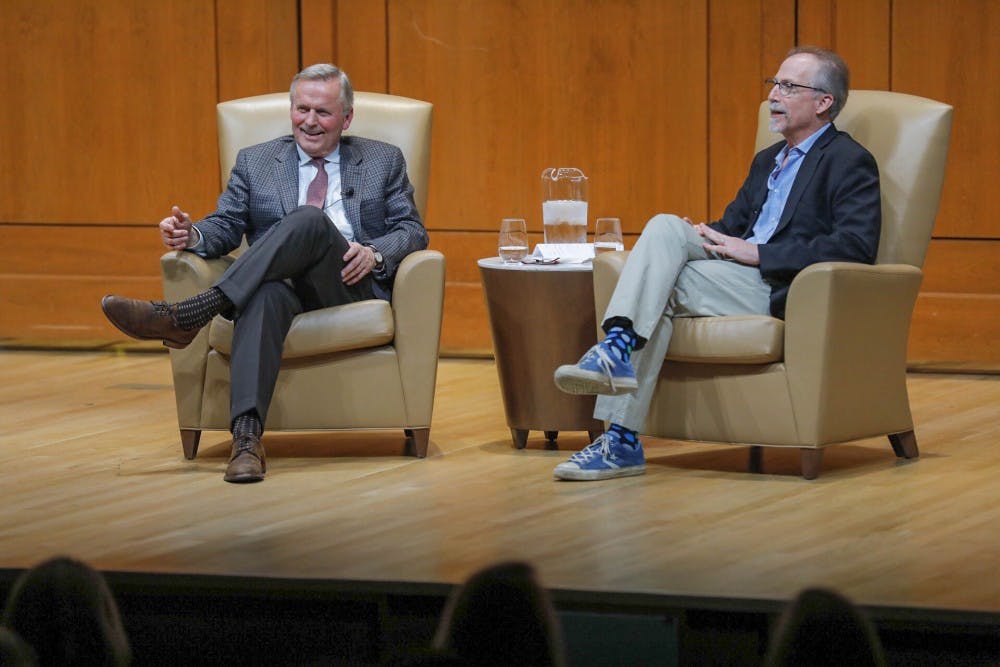John Grisham is quick with a joke. Married to a UNC graduate and with a daughter who graduated in 2008, he said he is already tired of basketball this season. Teased about wearing a suit, he quipped that he still dresses like a lawyer, years after changing professions.
But what he writes about is anything but lighthearted. Grisham writes nearly one book a year and the majority fall under the genre of legal thrillers. His topics include homelessness, the death penalty and wrongful incarceration — the seriousness of which is surprising, given that his two grandchildren refer to him as “G.”
Grisham was the lecturer at this year’s Eve Marie Carson Lecture Series. He spoke about his involvement in the Innocence Project, a non-profit that works to exonerate the wrongly convicted, and his passion for rights for those people. Judicial reform was not always on his radar, though.
“It’s really odd because I’d been a lawyer for 10 years and I never thought about the wrongfully convicted,” Grisham said. “I’d written 10 books, maybe more, about the legal system, before I finally woke up one day and saw these stories about these high-profile DNA exonerations.”
One of these stories inspired “The Innocent Man: Murder and Injustice in a Small Town,” Grisham’s only nonfiction novel, which was recently adapted into a Netflix series. He discovered the story while reading the obituaries — he came across a man named Ronald Keith Williamson who was wrongfully convicted of a murder, sentenced to death and exonerated once further evidence came to light.
Grisham said one thing that struck him about the case was his personal connection to Williamson. They both came from small towns in the South and aspired to play professional baseball, but Williamson’s story changed when mental illness made him perceived as the “town bum.” An unfair trial with insufficient evidence led to Williamson’s wrongful conviction and sentencing to death row.
He has not returned to nonfiction since, partially because he said he would rather avoid the lawsuits. Still, he said every wrongful conviction is a great story because it elicits deep human emotions of the frustration that comes with serving time for someone else’s crime.
When it comes to judicial corruption, Grisham said he can think of three things that would bring about positive reform: abolishing the death penalty, decriminalizing drugs and doing away with judicial elections in states.
“It’s easy to send an innocent person to jail,” Grisham said. “It’s almost impossible to get them out.”




